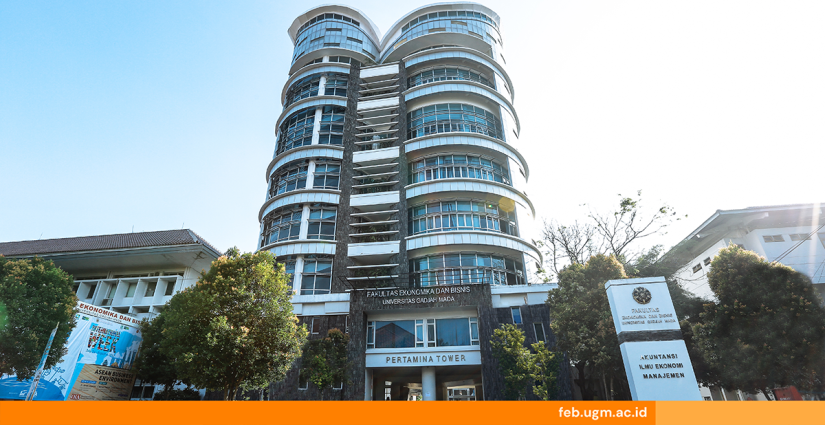
In higher education, particularly in business schools, quality assurance and accreditation are not formalities. They are crucial elements for maintaining and enhancing institutional quality, competitiveness, and reputation nationally and globally. The Faculty of Economics and Business at Universitas Gadjah Mada (FEB UGM), as an institution accredited by the Indonesian Accreditation Agency for Higher Education in Economics, Management, Business, and Accounting (LAMEMBA) and the international Association to Advance Collegiate Schools of Business (AACSB), demonstrates how quality assurance can open broader access and opportunities for students, alums, and the entire academic community.
The Importance of Accreditation
Head of the Quality Assurance and Accreditation Unit at FEB UGM, Aprilia Beta Suandi, Ph.D., stated that quality assurance is vital to ensure that an educational institution meets specific quality standards, both internally defined and set by credible accreditation bodies.
“Without accreditation, institutions rely solely on internal claims without external validation. Accreditation is necessary to ensure that all academic and administrative processes align with nationally and internationally recognized standards,” said Aprilia.
In the context of business schools, accreditations such as LAMEMBA and AACSB involve evaluation processes carried out by academic experts in economics and business. Notably, AACSB accreditation requires assessors to be deans or heads of business schools with extensive experience in education and institutional management.
So, what are the benefits of achieving accreditation? Aprilia explained that accreditation brings various strategic advantages, such as international accreditation from AACSB, which positions FEB UGM among internationally recognized business schools. This accreditation opens more expansive opportunities for global collaboration, enhances its reputation as a leading business school, and provides greater access for students to participate in exchange programs, double degree pathways, and study at renowned universities abroad.
Aprilia also highlighted that LAMEMBA provides significant contributions, as assessors deliver feedback that internal evaluations often cannot generate.
“Feedback from external assessors is incredibly valuable due to its objectivity. Assessors provide broader and deeper perspectives, which serve as a foundation for FEB UGM to continuously improve and enhance its quality,” she explained.
Strengthening Reputation and Institutional Competitiveness
Aprilia emphasized that accreditation is not only a tool for quality assurance but also a strategy to boost institutional reputation and competitiveness at the global level. Accreditation provides formal recognition from academic and industry institutions, both nationally and internationally, expanding collaboration opportunities and enriching students’ learning experiences with cross-cultural and global perspectives.
“With this accreditation status, FEB UGM stands on equal footing with top business schools worldwide. The impact is tangible, including an increase in the number of international students choosing FEB UGM for their studies. Moreover, accreditation ensures that FEB UGM graduates possess competencies that meet global standards, enhancing their competitiveness in the job market,” Aprilia added.
Quality Assurance as a Core Pillar of Business Schools
The Quality Assurance and Accreditation Unit (UPMA) at FEB UGM systematically carries out quality assurance processes to maintain academic and operational standards, under the coordination of the UGM University Quality Assurance and Reputation Unit (SPMRU). As part of UGM’s Internal Quality Assurance System (SPMI) and a supporting unit to the Dean’s Office, UPMA strategically ensures continuous improvement in educational quality across processes, outcomes, and societal impact.
“Even outside of accreditation visitation periods, quality assurance activities continue. UPMA regularly oversees Internal Quality Audits (AMI), formulates and monitors student learning outcomes through the Assurance of Learning (AOL) process, and participates in monitoring procedures mandated by national and international accreditation bodies,” Aprilia explained.
FEB UGM begins the quality assurance process by establishing standards based on the National Standards of Higher Education, requirements from accreditation agencies, and UGM’s internal benchmarks. Faculty leaders, program heads, and lecturers actively contribute to developing these standards. After setting the standards, FEB UGM continuously monitors, evaluates, and audits its implementation. On a broader scale, external assessors provide feedback during the accreditation process, which FEB UGM uses as a key reference for ongoing improvements.
“The feedback we receive from assessors, in the form of actionable points, is used to refine existing programs and design new ones in response to the suggestions provided. Most importantly, each accreditation cycle must demonstrate improvements, supported by documented evidence,” she stressed.
Strategies for Maintaining Accreditation
In facing the ever-evolving landscape of higher education, the main challenge for FEB UGM is ensuring that all faculty components adapt to the changing demands of the market and evolving educational standards. This requires strong collaboration, commitment from academic and non-academic staff, and continuous support from the university.
The challenge does not end with achieving accreditation—it lies in maintaining it by continuously demonstrating innovation and sustainable improvement. FEB UGM addresses this through adaptive strategies, including curriculum updates that are aligned with current regulations while ensuring relevance to industry needs. This approach guarantees that FEB UGM graduates excel academically and are ready to compete in the global job market.
We continuously strive to accommodate needs amid rapid change. It’s not easy, but with resilience and innovation, FEB UGM will always be at the forefront of global business education,” she concluded.
Report by: Shofi Hawa Anjani
Editor: Kurnia Ekaptiningrum
Sustainable Development Goals











